An easy recipe for homemade guava jam (fresh guavas)
Sweet, smooth, and full of Caribbean flavor, this homemade guava jam is a must-have for any tropical pantry. With just a few simple ingredients and no pectin, you can bottle up a jar of sunshine and enjoy the taste of guava all year round.
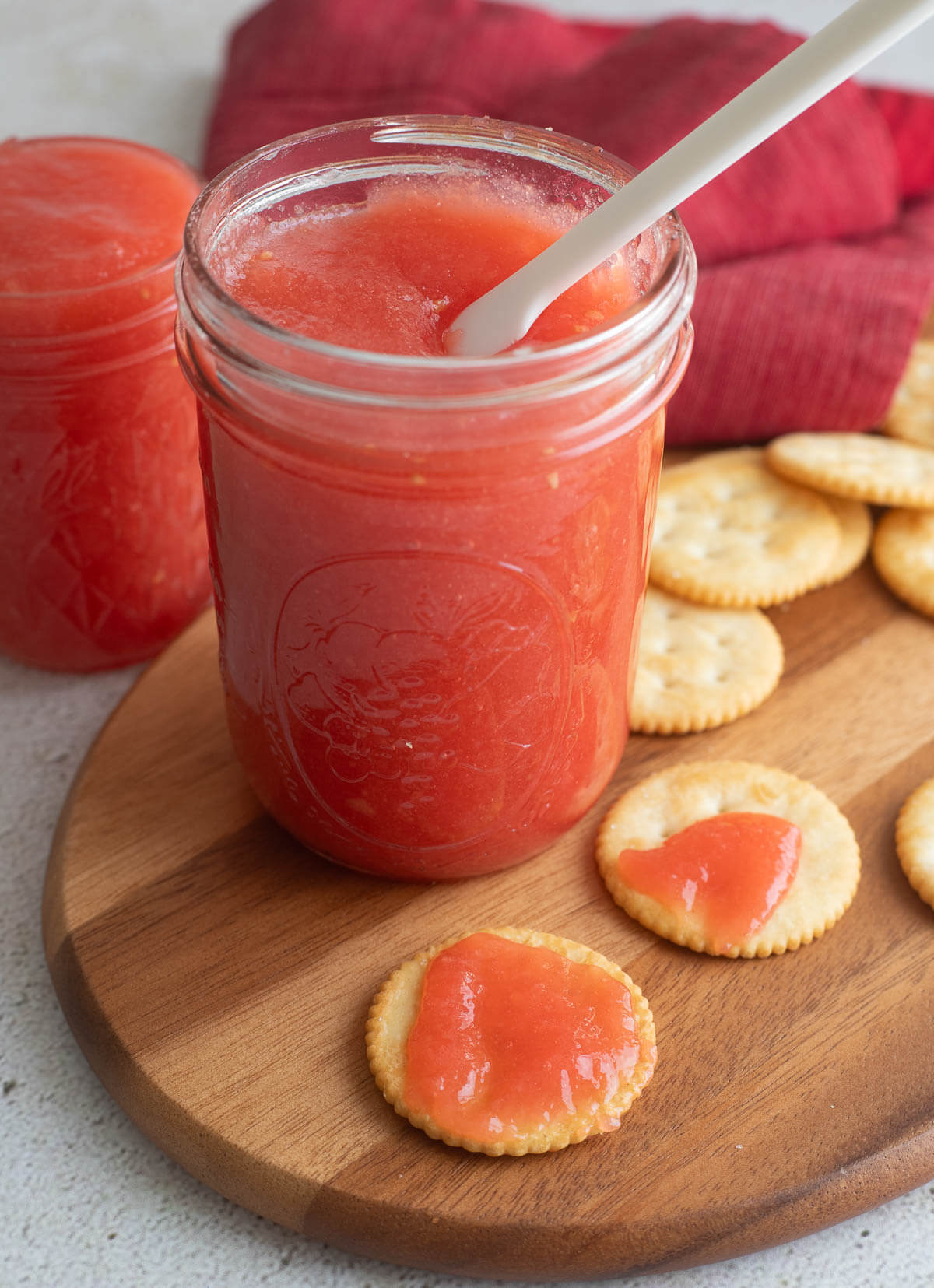
Growing up in Trinidad and Tobago, guava was everywhere. We had trees in our yard that produced more fruit than we knew what to do with. That meant plenty of guava juice, and even more guava jam.
At one point, I didn’t even want to see another guava. But of course, the love came back, especially when I learned how to turn those fruits into a jam that’s thick, luscious, and just the right balance of sweet and tangy.
Why You’ll Love This Recipe
- Simple ingredients – just guava, sugar, and lime
- No pectin needed – guavas are naturally high in pectin
- Smooth and spreadable – perfect for toast, pastries, and desserts
- Customizable sweetness and texture
What is guava jam?
Guava jam is a sweet fruit spread made by simmering guava pulp with sugar and a splash of lime juice until thickened. The result is a smooth, glossy jam with a soft pink hue and bright tropical flavor. You can use it on toast, with cheese, or even in glazes and cocktails.
How to Make Guava Jam
Key ingredients and their roles
In this section, we will take a look at some of the key ingredients for making this tropical jam.
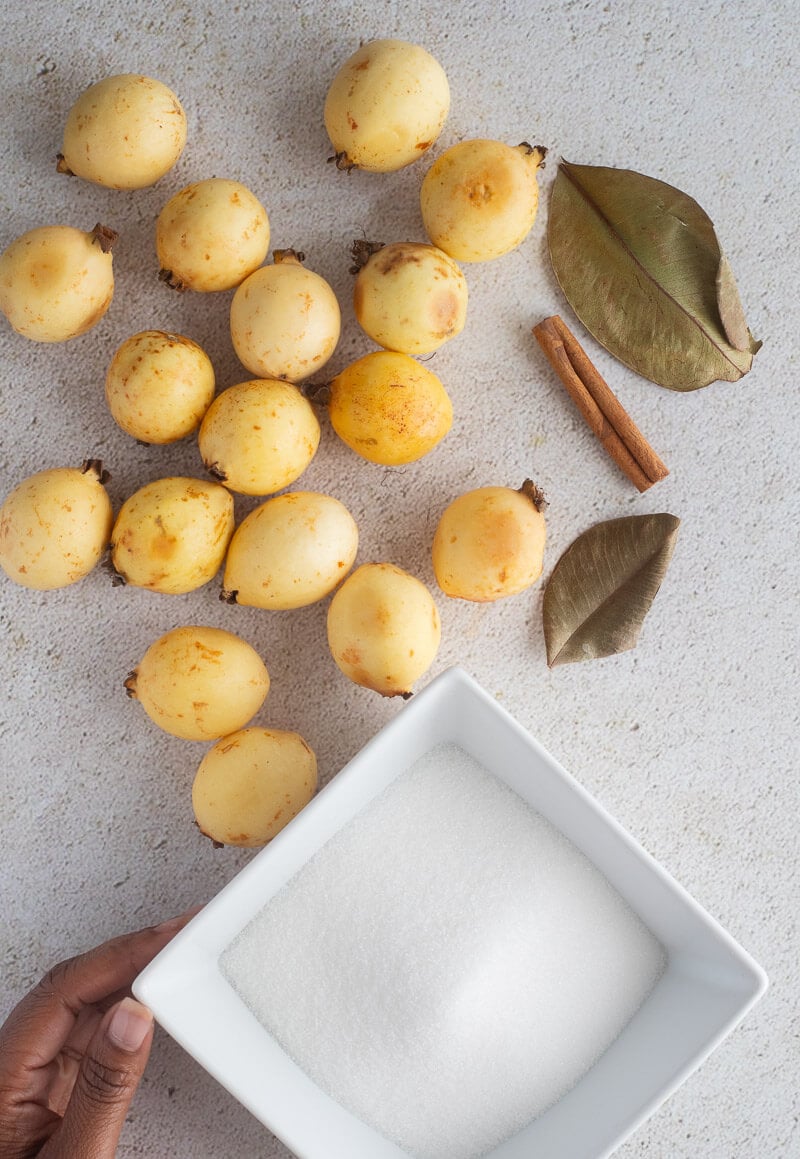
- Fresh guavas (or frozen pulp) – The star of the jam. Ripe guavas provide sweetness and natural pectin for gelling.
- Sugar – Granulated sugar creates the right texture and balances the tartness. Brown sugar will darken the color.
- Lime juice – Enhances the flavor and helps the jam set by boosting acidity.
- Bay leaf & cinnamon stick – Optional flavor enhancers for depth.
- Food coloring (optional) – For pink guavas or to brighten white guava jam.
Instructions
Making guava jam at home is a simple and satisfying process that allows you to customize the level of sweetness and texture to your liking using simple ingredients.
- Prep the guavas: Wash the guavas under water to remove dirt. Trim the tops and bottoms, then cut into smaller pieces.
- Cook down the guavas: Add the chopped guavas to a deep pot. Add enough water to just cover the fruit, along with bay leaves and a cinnamon stick. Bring to a boil and cook until the guavas start to break down.<
- Strain the pulp: Remove the pot from the heat and let the mixture cool. Discard the bay leaves and cinnamon stick. Working in batches, pour the mixture into a strainer over a bowl. Press with a spoon or spatula to separate the seeds from the pulp.
- Simmer with sugar & lime: Add the strained puree to a clean pot with
- sugar and lime juice. Heat over medium, stirring to dissolve the sugar.
- Reduce to a low simmer.
- Cook until thickened: Let the jam simmer, stirring occasionally, until thickened (20–40 minutes). Use a candy thermometer (220°F) or the wrinkle test on a chilled plate to check if it’s ready. Add food coloring if desired.<
- Bottle the jam: Ladle the hot jam into sterilized jars. Wipe rims
- clean, seal, and allow to cool. For long-term storage, process jars in a
- boiling water bath.
Tips
- To get the best results, always taste your guavas first, this helps you adjust the amount of sugar based on how sweet (or tart) they are.
- If you want a super smooth jam, blend the pulp before cooking.
- Prefer a bit of texture? Leave some of the pulp unblended for a chunkier finish.
- Stir the jam regularly as it cooks to prevent scorching, especially as it thickens.
- And if you’re feeling adventurous, add a little citrus zest or warming spices like ginger, nutmeg, or even cardamom to build extra layers of flavor.
Storage
Storing guava jam properly is essential for maintaining its quality and flavor over time. Here’s how you should store guava jam:
- Pantry – Store sealed jars in a cool, dark place for up to 1 year.
- Fridge – Once opened, refrigerate and use within 1–3 months.
- Freezer – Use freezer-safe containers and store for up to 1 year.
As with any food product, it’s essential to use proper hygiene practices during preparation and storage to minimize the risk of contamination. Additionally, always inspect the jam for any signs of spoilage, such as mold growth, off odors, or changes in texture or color, before consuming.
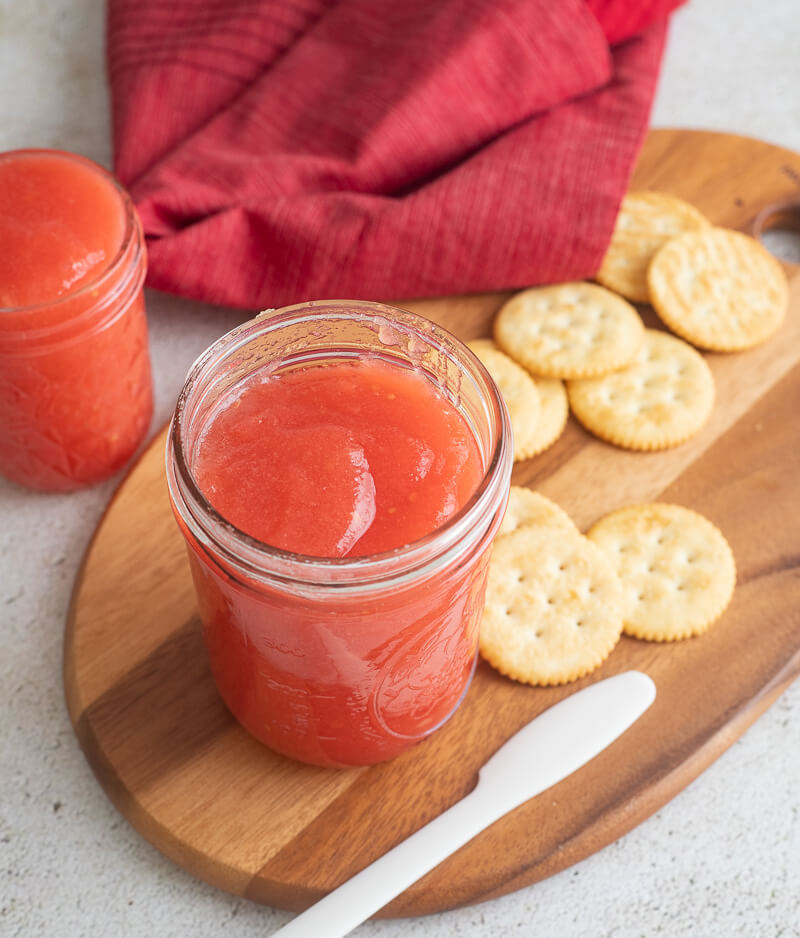
Ways to use this delicious jam
- Spread on toast or crackers
- Pair with cream cheese or brie
- Fill pastries, croissants, or tarts
- Glaze meats or BBQ wings
- Swirl into yogurt or oatmeal
- Spoon onto cheesecake or ice cream
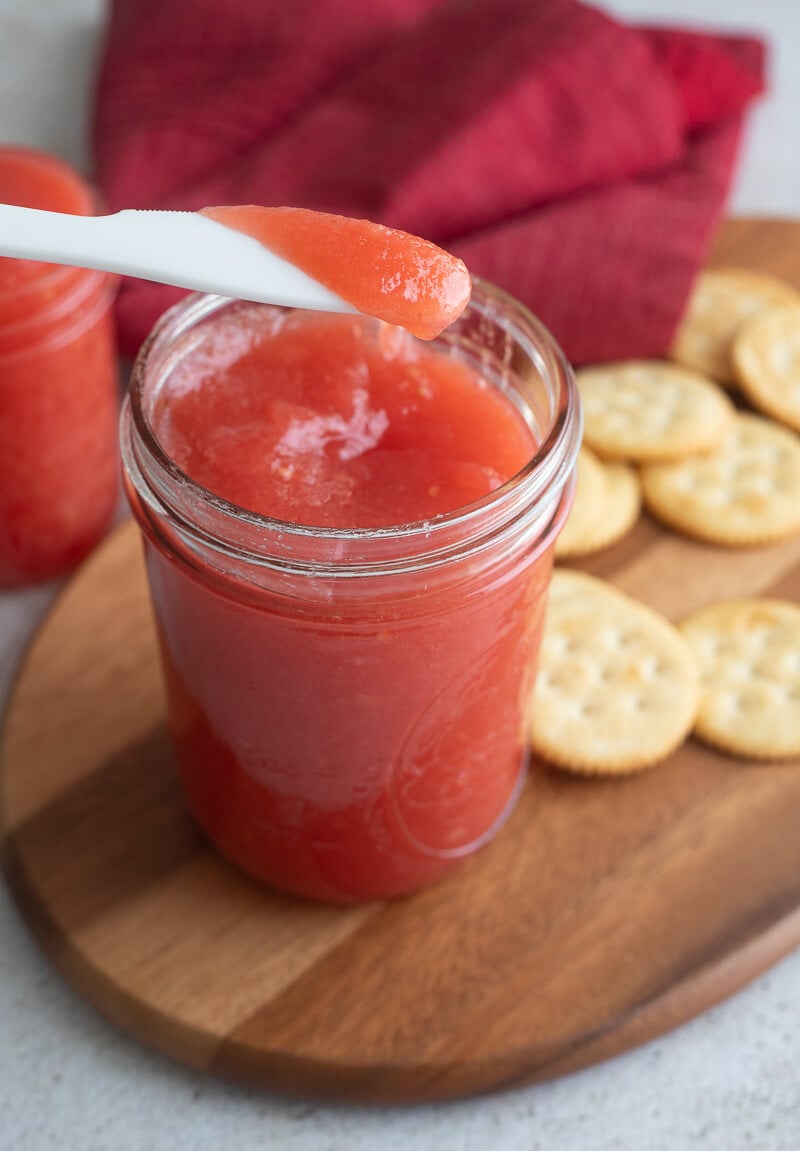
Here are some more Caribbean condiments:
Frequently Asked Questions
Yes, but they’re more tart and will take longer to cook. Add more sugar to balance.
Nope. Guavas have natural pectin, especially when underripe.
Look at Caribbean, Latin, or Asian markets. Frozen pulp is a great alternative.
Pour slowly, tap the jars, and run a clean utensil around the inside to release trapped air.
Recipe

Guava Jam Recipe
Ingredients
Method
- Wash the guavas with water.
- Cut off the tops and the bottoms of the guavas, then cut them into smaller pieces.
- Add the guava to a deep pot then add enough water to be the same level as the guavas.
- Add in the bay leaves and cinnamon stick.
- Bring the mixture to a boil. Boil until the guavas start to disintegrate.
- Remove the pot from the heat and let it cool.
- Remove the bay leaves and cinnamon from the pulp.
- Add the pulp to your strainer, over a large bowl, and use a spoon or spatula and press the pulp against the strainer to separate the seeds.
- Once you have that guava puree, on medium-high heat, in your non-stick pot, add the puree and the sugar and combine till the sugar is dissolved.
- Add in the juice from the lime and continue to mix in. Once the mixture is boiling, lower the heat and continue stirring to ensure no sticking.
- Stir until the mixture starts to thicken. We do not want it running off the spoon.
- Once it starts to thicken up, add 1 to 2 drops of food coloring.
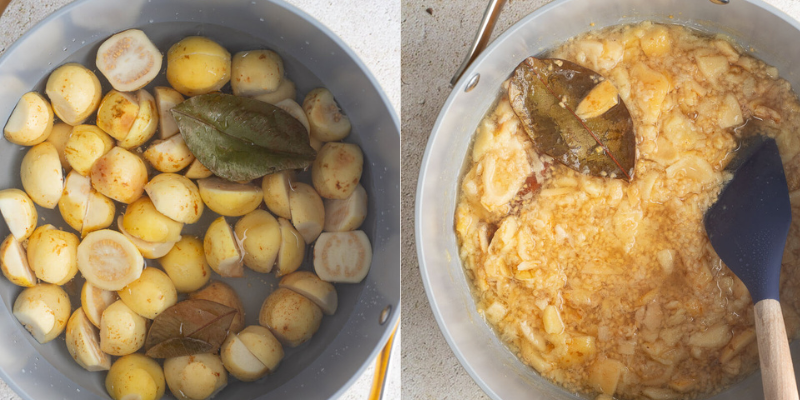
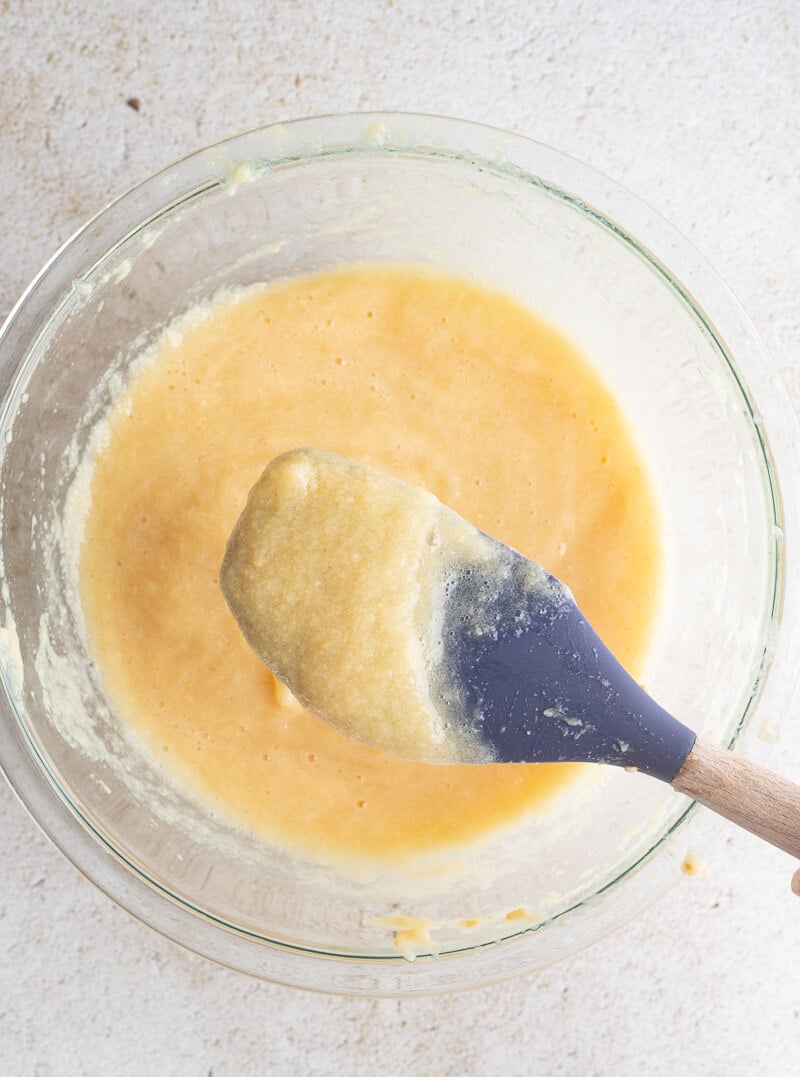
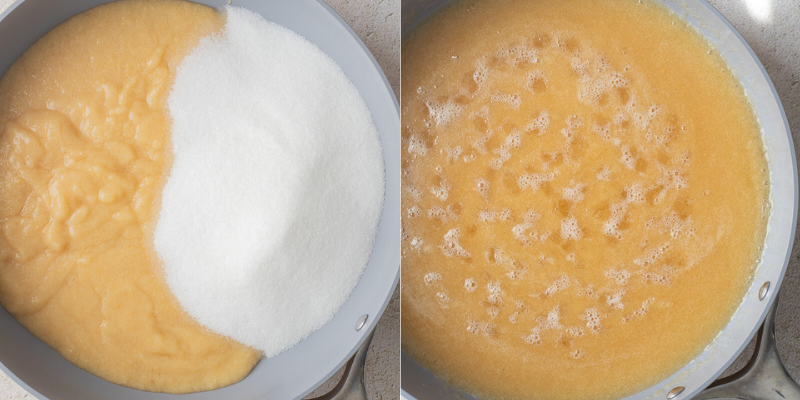
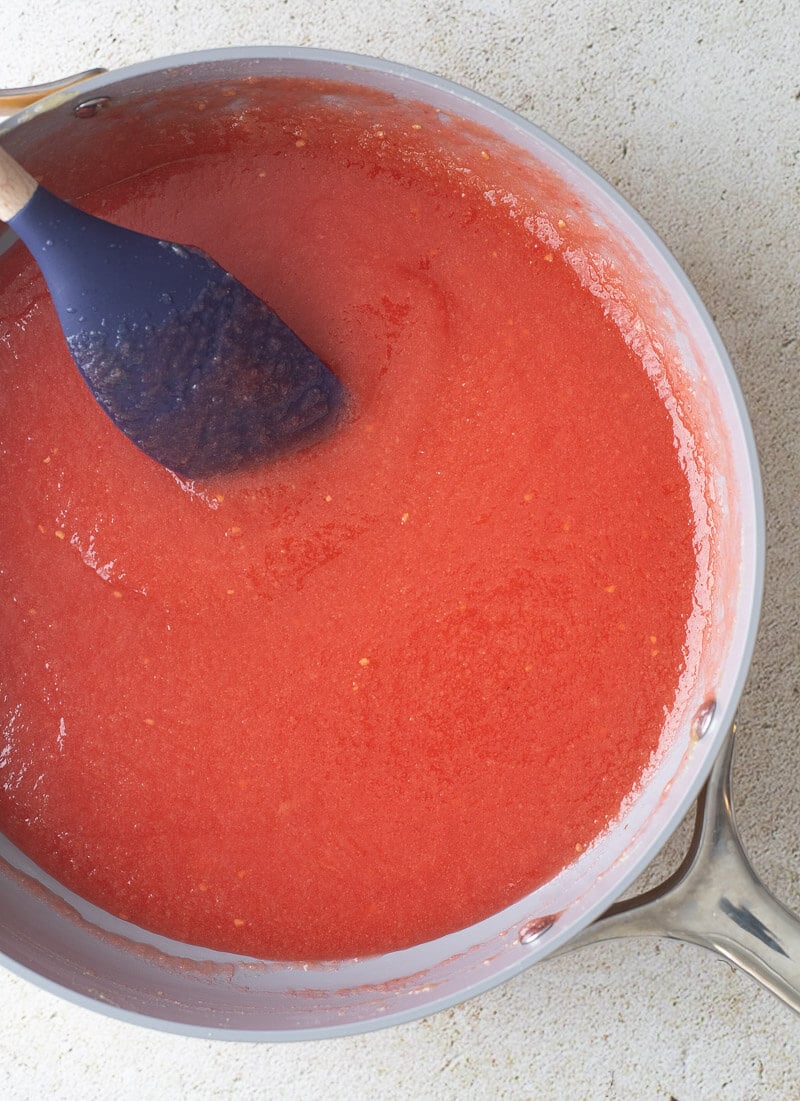
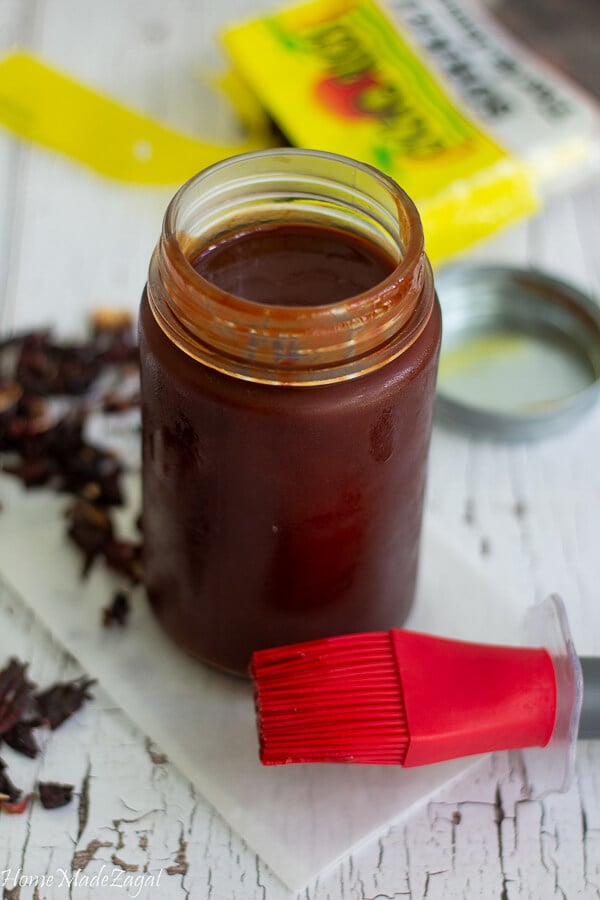
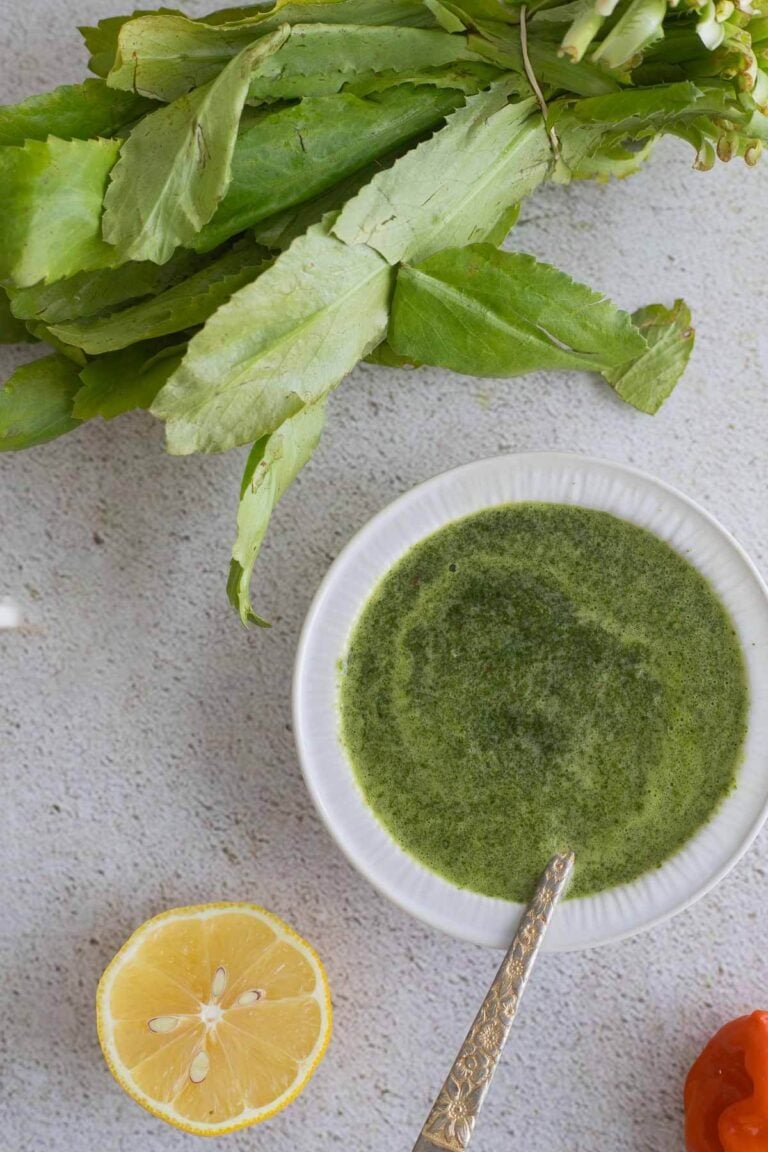
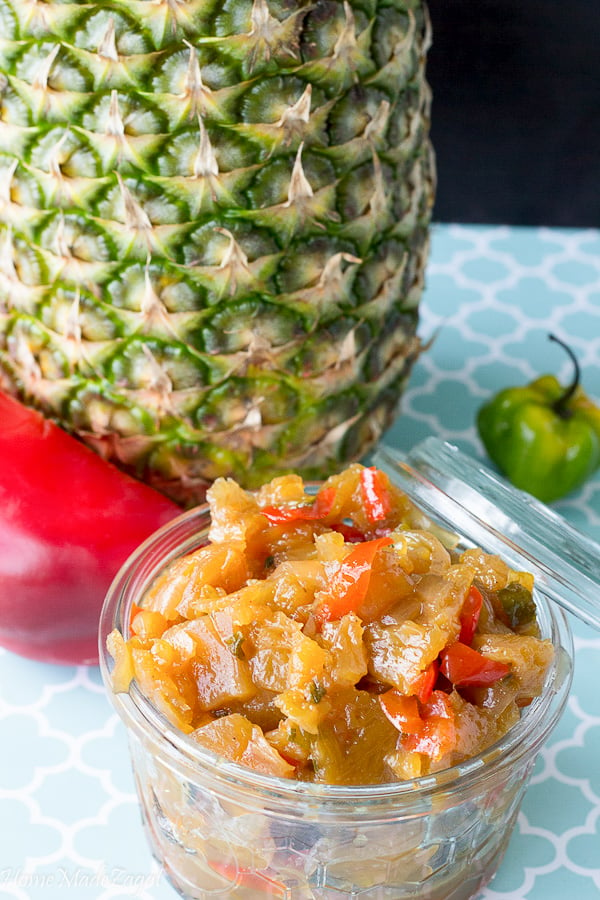
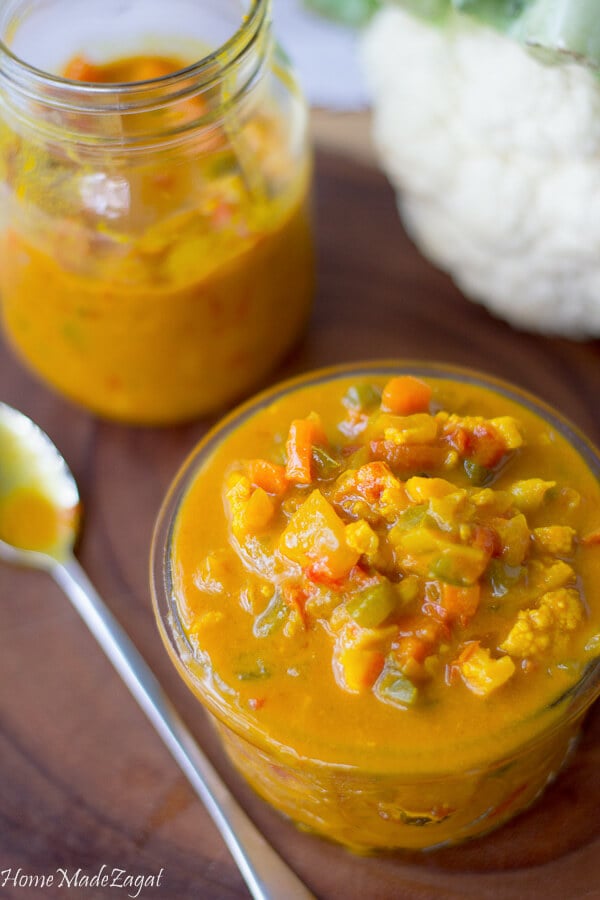
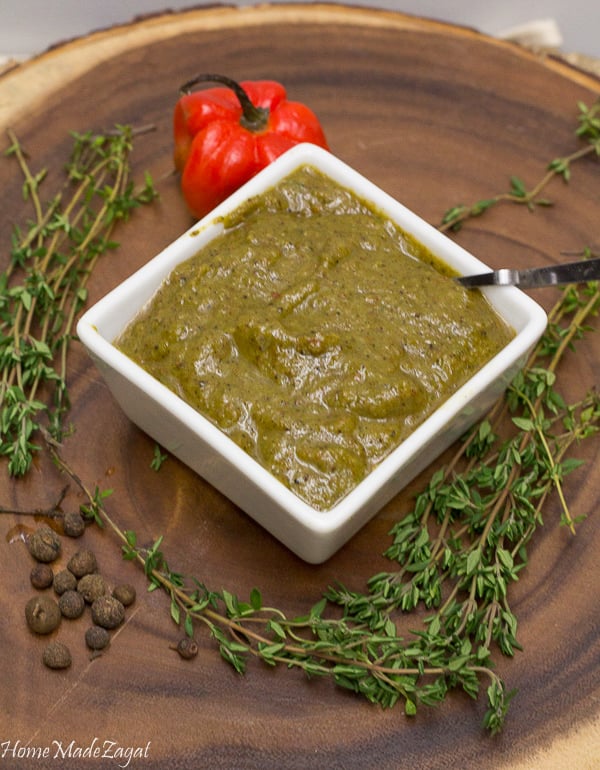
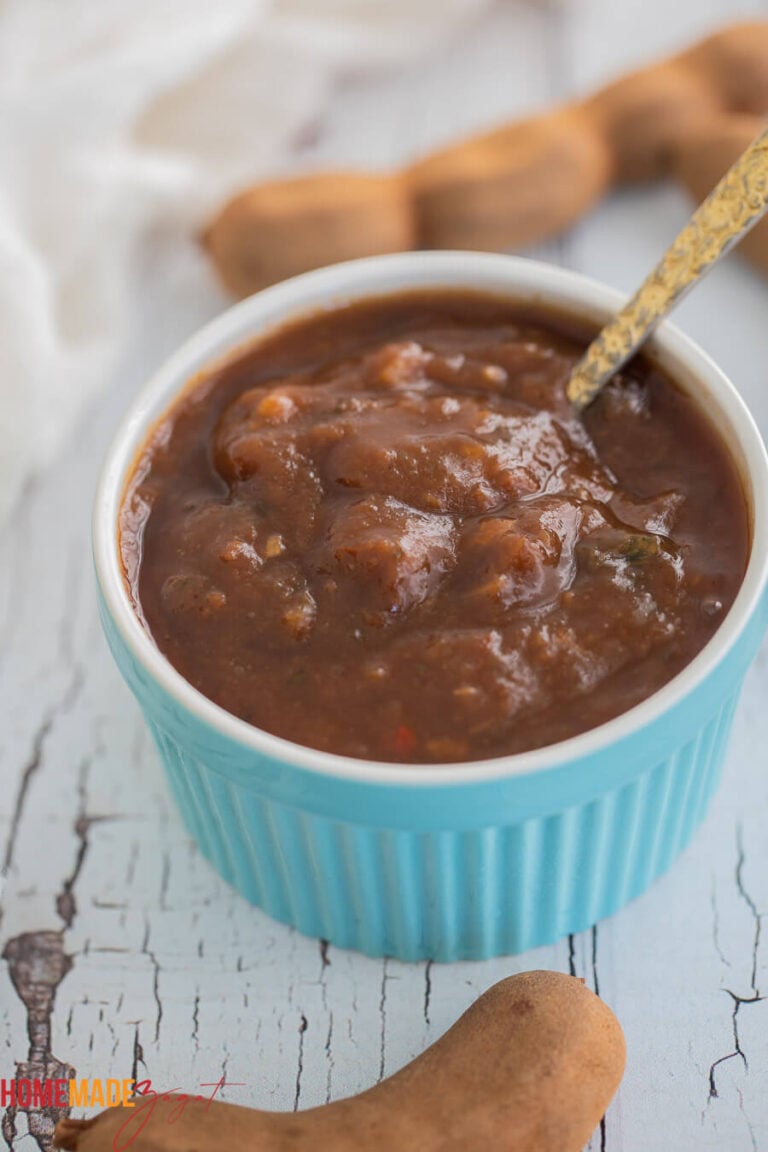
Oh this was easier than I thought. I love that it’s simple ingredients too.